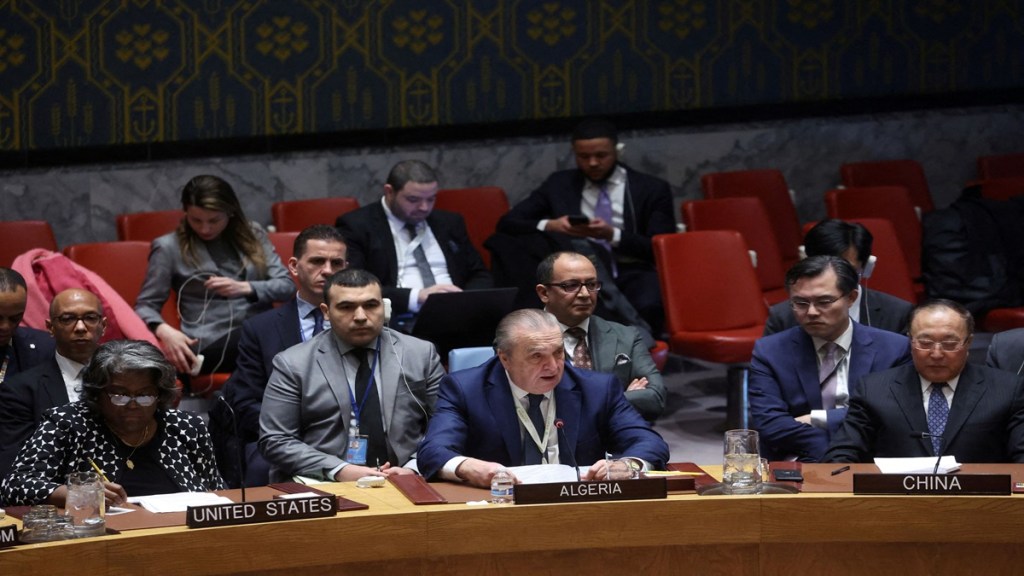The United States is drawing sharp criticism for exercising its veto power to block a UN resolution calling for an immediate cease-fire in the ongoing Israel-Hamas conflict in Gaza. This resolution, backed by Arab nations and widely supported internationally, is aimed to halt the hostilities and address the humanitarian crisis in the region.
What did the resolution say?
A resolution in the UN Security Council requires at least 9 affirmative votes for adoption, without any vetoes from the five permanent members: the US, UK, France, Russia, or China. The resolution for immediate ceasefire was proposed by Algeria, in response to which, only the US advocated for a temporary ceasefire linked to the release of hostages held by Hamas. Out of the 15-member council, 13 supported the Algerian-drafted resolution, while the United Kingdom abstained. This demonstrated significant global backing for ending the more than four-month-long conflict, which began with Hamas militants’ incursion into southern Israel. The invasion resulted in the deaths of approximately 1,200 people and the abduction of 250 others.
Reactions and US’ response
The US veto drew criticism from Palestinian UN envoy Riyad Mansour, who argued it signals tacit approval for Israel’s actions without repercussions. On the other side, Israel’s UN Ambassador Gilad Erdan opposed the focus on a ceasefire, asserting it would only ensure Hamas’s survival.China too reacted strongly over United States’ veto. Zhang Jun, China’s permanent representative to the United Nations, emphasized that the US veto sends a “wrong message” and exacerbates the situation in Gaza, Xinhua reported. Zhang stated that objecting to a ceasefire in Gaza is akin to giving a “green light” to ongoing violence and bloodshed.
In response, the US has put forward its own draft resolution, a departure from its previous reluctance to use the term ‘ceasefire’ in UN discussions regarding the conflict. This proposed resolution advocates for a temporary ceasefire conditional on the release of hostages and calls for unobstructed humanitarian aid.
Meanwhile, the World Food Programme on Tuesday announced a suspension of food deliveries to isolated northern Gaza due to escalating chaos throughout the region, raising concerns of potential starvation, reported AP. A study conducted by the UN children’s agency revealed that one in six children in the north are suffering from acute malnutrition.

